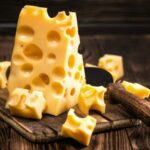Tooth extraction is an essential step in maintaining dental health for many people. Unfortunately, it can be a painful process with a lengthy recovery. According to experts, there are certain things you should avoid to ensure comfort and quick healing. From not drinking through a straw to hydrating, this article will provide five key things to consume and avoid.
1. Avoid Consuming Hard or Crunchy Foods
Eating hard and crunchy foods may be your favorite, but you must stay away from them after tooth removal. These foods may increase bleeding from the extraction point. If that should happen, it raises your risk of pain and discomfort.
Eating crunchy foods also irritates your gums and mouth, slowing your recovery. Moreover, these types of food can dislodge the blood clot that forms after the surgery. If that should happen, it can result in a painful condition called dry socket. This is an infection of the gums, and it can be very painful and might slow down healing.
It’s best to avoid hard and crunchy foods during the initial healing period. Instead, consider soft foods that don’t involve a lot of chewing. Smoothies, soups, and mashed potatoes are all excellent alternatives to eating hard foods.
2. Avoid Alcohol
Drinking alcohol after dental surgery is a no-no. Why is it a bad idea to drink alcohol? Drinking after getting your teeth removed increases your chances of infection. It also makes you more susceptible to pain. If it does end up causing you pain, it may last weeks or even months. The longer it takes for your mouth to recover, the more discomfort you may experience.
Furthermore, alcohol can interact with medications prescribed for pain and swelling. With interactions, it can lead to dangerous side effects. For example, it can impair your judgment and reaction time. If you’re unsure when to drink again, ask your dentist before assuming it’s safe.
3. Drink Lots of Water
You will most likely experience swelling after the procedure. Accordingly, hydration is critical because it reduces swelling and speeds up healing. Drinking water is a simple and inexpensive way to hydrate your body after surgery. In addition, it can aid in the removal of toxins, the healing of soft tissue, and the recovery of muscles.
Fluids play a crucial role in keeping the mouth hydrated and reducing dryness. If your mouth isn’t moist enough, it can result in discomfort. In the worse case, it can lead to further health issues.
Moreover, it helps dilute the amount of sugar and acids in the mouth. This, in turn, lessens inflammation. You may struggle with staying hydrated post-surgery. Try to make healthy smoothies and fruit-infused water.
4. Eat Dairy
Dairy products are high in calcium, vitamins, and protein. It’s great for making healthy smoothies, oatmeal, and baked goods. Dairy products to consider include milk, yogurt, and cheese.
Milk is high in calcium, vitamins, and protein. As a result, it can improve immunity, promote healthy skin, and even protect against certain types of cancer.
Yogurt is high in vitamins and minerals. So use yogurt to make nutritious smoothies, baked goods, and soups. It’s perfect for eating after your teeth are pulled.
These products can help reduce inflammation and swelling. Plus, dairy can soothe the pain of the extraction site.
5. Avoid Drinking Through a Straw
It is best to avoid drinking through a straw while healing. If you do, the pressure can irritate your gums. Plus, using a straw could result in additional bleeding. Unfortunately, the suction aids in drawing blood from the tooth extraction site. It may also increase the risk of transmitting bacteria from your mouth to the extraction site. If there’s too much bacteria, worse case, your mouth can get infected.
So, you cannot use a straw after getting your teeth pulled. Instead, use a spoon to eat your smoothie and yogurt more easily.
A Few More Things to Keep in Mind
You may be accustomed to wearing a night guard at night. Using one during the healing phase shouldn’t be an issue unless it interferes with the dressing. If this is the case, keep it in place until your post-operative checkup. Then, your dentist can ensure the night guard isn’t interfering with the healing process. To learn more about night guards, JS Dental Lab discusses how it may benefit you to wear one.
Your gums are susceptible and prone to irritation. So, monitoring what you eat after surgery is critical. Crusty fruits and vegetables, hard or chewy foods, hot and spicy foods, and hard cheeses can all irritate your gums.
Instead, choose soft fruits and vegetables, whole grain bread, and other soft foods. Eating these foods ensures you get the nutrients you need to recover quickly and safely.








